Finding the best affordable colleges for a gerontology degree helps future healthy aging advocates pay for four years of bachelor’s tuition easier. With less financial stress, gerontology majors can focus on protecting the welfare of senior citizens instead. Top-value gerontology degrees study the physical, mental, and social problems that specifically face elderly adults. Now’s an excellent time for investing in gerontology courses because the global population is getting older. In 2018, the Administration for Community Living reported that there were 50.9 million Americans age 65 and over. Our nation’s current average life expectancy is 78.6 years, but many people live longer. Currently, the oldest living U.S. resident is 114 years old! Helping seniors live longer, happier, and more productive lives is every gerontology major’s ultimate goal. Affordable colleges for gerontology degree programs are in demand for training human services professionals dedicated to baby boomers’ needs.
Our Methodology
Affordable Schools endeavored to create a well-researched ranking of affordable gerontology degree options that can fit students’ tight budgets. We began by accessing the public National Center for Education Statistics (NCES) College Navigator database. Our team conducted an advanced search to filter out four-year bachelor’s degrees in gerontology and geriatrics. We formed an initial pool of 20 institutions that we further evaluated for quality. One pivotal ranking factor was the school student: faculty ratio. We prioritized this figure because it showcases how interactive gerontology courses will be. Our staff aimed for low student: faculty ratios of 10:1 and under where professors are ready to mentor individually. Small college classes ensure gerontology undergrads aren’t lost in the shuffle. Opportunities for hands-on gerontology research, practicum, and volunteer service are also more likely. We assigned each school one to three points based on the following scale to reward strong student engagement.
Points:
10:1 or Less: 3 Points
11:1 to 15:1: 2 Points
Greater Than 15:1: 1 Point
Further, the AS Staff consulted the United States Office of Postsecondary Education‘s accreditation center. We made sure that all 20 potential gerontology programs were regionally accredited by the six recognized agencies. Regional accreditation is essential for a good education investment that’s valued by other colleges, employers, and certification providers. Our search for low-cost colleges for gerontology degree programs obviously ended with tuition analysis. We used the College Navigator’s 2018-19 dollar amounts for average full-time undergraduate study. Our article below notes the out-of-state cost, but our focus was on in-state tuition. We only selected gerontology universities with in-state bachelor’s pricing of $15,000 and under. Our researchers assigned one to three points based on the below rubric. These points were added to the previous student:faculty ratio points for a maximum sum of six. We then arranged the most affordable accredited colleges for gerontology degrees.
Points:
Under $7,500: 3 Points
$7,500 to $15,000: 2 Points
$15,001 and Up: 1 Point
Ranking the 15 Best Affordable Colleges for Gerontology Degree Programs
15. Bethune-Cookman University
Daytona Beach, FL
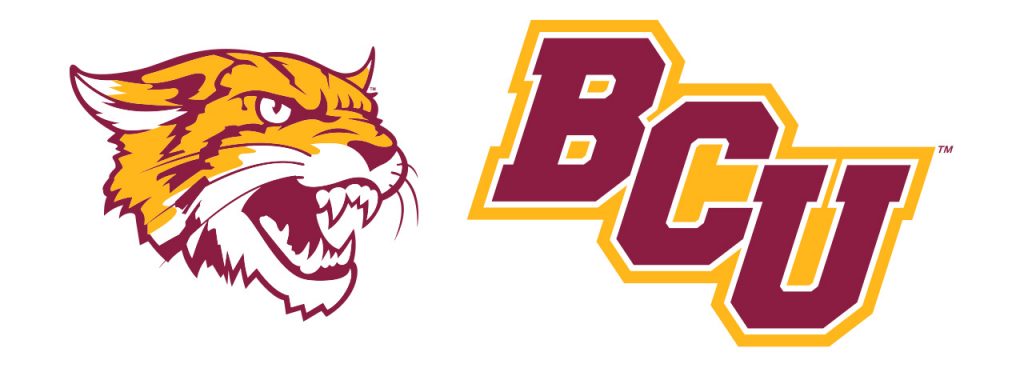
Total Points: 3
Program Website
Bethune-Cookman University is a private, Methodist historically Black institution founded in 1904. It offers an African Americans in Gerontology (AAIG) Chapter. It enrolls 3,620 undergraduates in 44 majors. In 2018, B-CU won the Nunn-Perry Award for Outstanding Achievement. The university also won the Online Learning Consortium’s 2017 Merlot Service Award. The U.S. News & World Report named Bethune-Cookman University the 29th best HBCU nationwide. B-CU boasts America’s 67th most liberal academics on Niche and 110th top baccalaureate degrees in Washington Monthly.
The Petrock College of Health Sciences offers a low-cost B.S. in Aging Studies to examine 21st-century societal issues affecting elderly communities of color. The 120-credit, SACS-accredited program integrates 300-level major courses like Death and Dying with two semester-long gerontology practicum placements. Students can also:
- join the Pre-Med Society
- attend the National Conference on Equitable Development
- venture abroad to Tanzania
- become SHINE Volunteers
- minor in Social Work.
Degree Options:
Bachelor of Science in Aging Studies
In-State Tuition:$14,814
Out-of-State Tuition:$14,814
Student-Faculty Ratio:16:1
14. Bowling Green State University
Bowling Green, OH

Total Points: 3
Program Website
Bowling Green State University is a public, coed RU/H Mid-American Conference member. It enrolls 20,395 students from 70 countries online and in Greater Toledo. It’s been funded by Medical Mutual of Ohio since 2016 for its Optimal Aging Institute. In 2019, BGSU earned the American College Health Association’s Best Practices Award. It also received the 2019 NASPA Grand Silver Excellence Award. The U.S. News & World Report ranked Bowling Green State University 215th nationally. It’s ranked:
- America’s 168th best student life on Niche
- 221st top public education in Forbes
- 374th best alumni employment on the CWUR.
Bowling Green’s College of Health & Human Services admits upper-division cohorts of 35 for an affordable B.S. in Gerontology that focuses on the biological phenomena of old age. The 120-credit, HLC-accredited major splits into Long-Term Care Administration and General Gerontology tracks. Undergrads can also:
- complete 400-hour internships like Fulton Manor Rehabilitation
- join the GSA Chapter
- participate in the Alzheimer’s Memory Walk
- continue for the Master of Science.
Degree Options:
Bachelor of Science in Gerontology
In-State Tuition: $11,105
Out-of-State Tuition: $19,093
Student: Faculty Ratio: 18:1
13. Youngstown State University
Youngstown, OH

Total Points: 3
Program Website
Youngstown State University is a public, doctoral-granting Horizon League member. It enrolls 12,756 students from 45 nations. It has participated in the Ohio Scholars in Aging Program since 2013. In 2019, YSU earned its fourth Healthy Business Council Gold Level Award. It accepted the 2019 John W. Nason Award for Board Leadership. The U.S. News & World Report placed Youngstown in the top 165 Midwestern schools. It was ranked:
- America’s 319th most liberal college on Niche
- seventh best value by College Consensus
- 170th top university by Washington Monthly
The College of Liberal Arts & Social Sciences offers the affordable Gerontology Major (B.A.) for undergrads learning the complexity of human aging. The 120-credit, HLC-accredited program has a 100 percent internship rate with Menorah Park, Comfort Keepers, Mercy Health, Copeland Oaks, and more. Students may also:
- pledge Sigma Alpha Lambda
- volunteer with Bridges Out of Poverty
- earn the Long-Term Care Administration Certificate
- travel to Ecuador
- apply for the Ryan Mirkin Memorial Scholarship
Degree Options:
Bachelor of Arts in Gerontology
In-State Tuition: $8,967
Out-of-State Tuition: $9,327
Student:Faculty Ratio: 17:1
12. University of Northern Iowa
Cedar Falls, IA
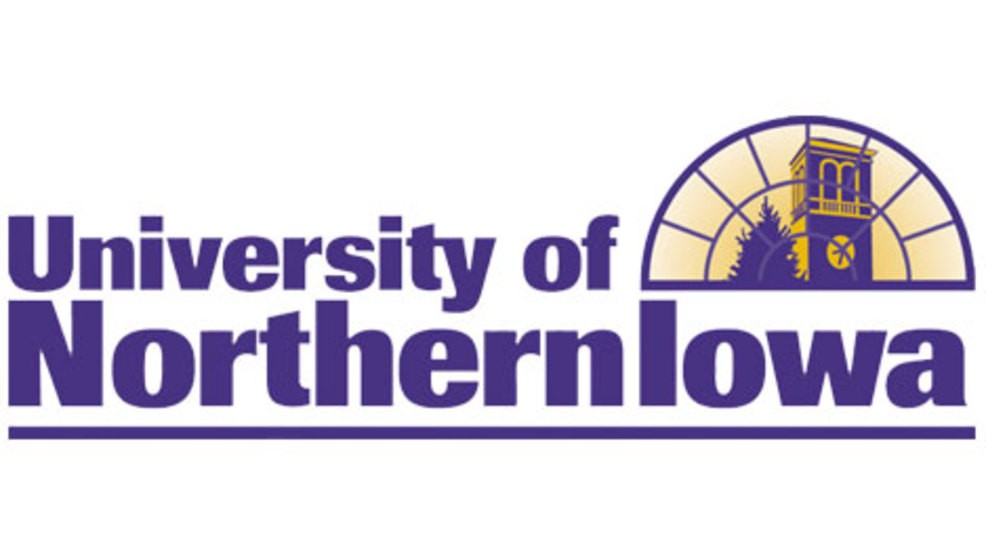
Total Points: 3
Program Website
The University of Northern Iowa is a public, state-funded MVC member started in 1876. It enrolls 13,553 students from 57 countries. It hosts the Gerontology Conference in Maucker Union each July. In 2019, Northern Iowa received a CASE District VI Educational Fundraising Award. The UNI Omicron Delta Kappa Chapter earned a 2017 Superior Circle Award. The U.S. News & World Report picked Northern Iowa as the 25th best Midwestern option. The university was ranked:
- America’s 131st top public school in Forbes
- 231st best value by WalletHub
- 169th best college for student life on Niche.
The School of Applied Human Sciences has the state’s only affordable Gerontology B.A. dedicated to serving elderly populations. The 130-credit, HLC-accredited plan has a Social Sciences and Long-Term Care Administration specialization with 95 percent board certification success. Opportunities include:
- interning at Touchstone Living Center
- engaging in the Memory Trunks Program
- joining the Advocates for Alzheimer’s Awareness
- working on the Gerontology Newsletter.
Degree Options:
Bachelor of Arts in Gerontology
In-State Tuition: $8,938
Out-of-State Tuition: $19,480
Student: Faculty Ratio: 18:1
11. Minnesota State University-Moorhead
Moorhead, MN
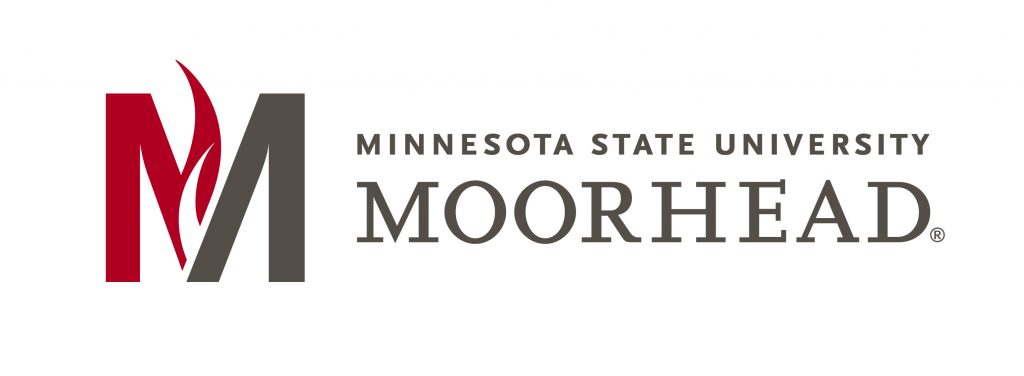
Total Points: 3
Program Website
Minnesota State University-Moorhead is a public, coed MNSCU System branch. It enrolls 5,836 students in 82 majors. In 2019, MSUM earned its 11th Council for Advancement & Support of Education Professor of the Year award. Moorhead earned three 2018 SPJ Region 6 Mark of Excellence Awards. The U.S. News & World Report ranked the university the 26th top public Midwest school. It was also ranked:
- America’s 360th best education on Niche
- 370th most affordability on College Factual
- 95th best campus experience on WalletHub.
The Sociology & Criminal Justice Department offers the inexpensive B.A. Degree in Gerontology for undergrads wanting to improve public policy affecting seniors. This 120-credit, HLC-accredited curriculum has a 100 percent job placement after interdisciplinary courses from Behavioral Science to Elder Law. Majors might also:
- attend the Meeting of the Minds Dementia Conference
- join Gamma Eta Rho Omega
- intern at Bethany Retirement Living
- spend a semester at Oxford.
Degree Options:
Bachelor of Arts in Gerontology
In-State Tuition: $8,496
Out-of-State Tuition: $15,906
Student: Faculty Ratio: 19:1
10. SUNY Oneonta
Oneonta, NY
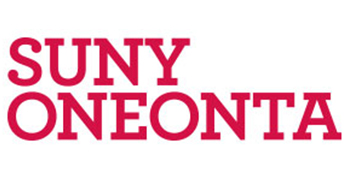
Total Points: 3
Program Website
SUNY Oneonta is a public, four-year liberal arts school opened in 1889. It enrolls 6,543 students from 12 countries. SUNY Oneonta is affiliated with the Central New York Citizen’s Aging Research & Action Network. In 2018, SUNY Oneonta accepted the AASCU Sustainable Development Award. It earned its second Insight Into Diversity Higher Education Excellence Award in 2017. The U.S. News & World Report ranked SUNY Oneonta the 55th best Northern institution. The university was also ranked:
- America’s 249th top value in Money
- 161st best sociology program on Niche
- 144th best public college by Forbes.
The Sociology Department builds upon its human ecology framework for an inexpensive Gerontology Studies B.S. focused on older adults. The 120-credit, MSCHE-accredited program includes courses from Health Psychology to Medical Anthropology. Job placement is 95 percent. Undergrads can also:
- apply for The Washington Center internships,
- apply for the Excelsior Scholarship
- join Alpha Kappa Delta Honor Society
- select from 16 overseas programs
- join Bassett Healthcare volunteers.
Degree Options:
Bachelor of Science in Gerontology Studies
In-State Tuition: $8,421
Out-of-State Tuition: $17,871
Student: Faculty Ratio: 19:1
9. University of Nebraska at Omaha
Omaha, NE

Total Points: 3
Program Website
The University of Nebraska at Omaha is a public, research-based CUMU member. It enrolls 15,431 students from 72 countries. It is noted for its Dr. Chuck Powell Memorial Gerontology Lecture Series. In 2014, UNO accepted the Presidential Award for Economic Opportunity. Omaha’s Omicron Delta Kappa Chapter won the 2018 Membership Growth & Stability Award. The U.S. News & World Report ranked its College of Public Affairs 25th nationally. The university was ranked:
- America’s 245th top value by WalletHub
- 107th best location on Niche
- 396th most influential by the CWUR.
Since 1972, the College of Public Affairs & Community Service has offered an affordable Gerontology B.S. program. The 120-credit, HLC-accredited major delivers Pre-Health, Long-Term Care Administration, and Healthy Aging courses. Undergrads can also:
- join Sigma Phi Omega
- engage in Courage to Care
- research in the Center for Aging
- intern at Brookstone Village
- pursue the Gerontology Ph.D.
Degree Options:
Bachelor of Science in Gerontology
In-State Tuition: $7,790
Out-of-State Tuition: $20,764
Student: Faculty Ratio: 17:1
8. William Carey University
Hattiesburg, MS
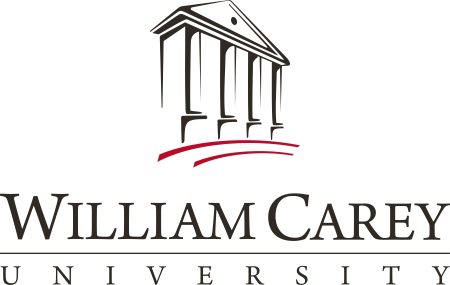
Total Points: 4
Program Website
William Carey University is a nonprofit, Baptist liberal arts CCCU member. It enrolls 4,911 students. It has been approved by the American Osteopathic Association since 2009. In 2019, William Carey received the AACOM Medical Education Innovation Award. It also won a 2018 University Research & Review Best Value School Award. The U.S. News & World Report ranked William Carey 39th in the Southern Region. The university was also ranked:
- America’s 68th best Christian education on Niche
- 21st most campus safety by WalletHub
- 17th top online degrees by SR Education Group.
The Department of Psychology & Counseling offers a low-cost Gerontology Major (B.S.) where undergrads gain appreciation for scientific inquiries into human aging. The 128-credit, SACS-accredited Baptist curriculum requires 11-week trimester courses like Personality and Developmental Psychology. Other opportunities include:
- conducting Gulf Coast Research Lab projects
- interning at Bedford Care Center
- networking with Carey Connection
- joining Alpha Chi
- taking the Peru Missions trip.
Degree Options:
Bachelor of Science in Gerontology
In-State Tuition: $12,600
Out-of-State Tuition: $12,600
Student-Faculty Ratio: 14:1
7. San Diego State University

San Diego, CA
Total Points: 4
Program Website
San Diego State University is a public, space-grant RU/H institution founded in 1897. that’s generating $2.4 billion yearly by training 34,828 Aztecs from more than 70 nations in 260 degrees at three SoCal campuses. Belonging to the Collaborative Healthy Aging Workforce Development Program,In 2007, SDSU won the Example of Excelencia in Education Baccalaureate Level Award. San Diego State earned the 2010 Champion for College Opportunity Award. The U.S. News & World Report ranked San Diego the 45th most innovative nationally. It was also ranked:
- America’s 324th best academics in The Wall Street Journal
- 43rd most diversity on Niche
- 79th top value in Money.
The School of Social Work admits juniors with at least 60 credits and GPAs above 2.5 into the inexpensive BA Gerontology program. The 64-credit, WASC-accredited major blends courses like Disability Studies and Cognitive Health with 15 weeks of field practicum. Students may also:
- join the Gerontology Alliance
- add the Human Services Management Certificate
- research in the Center on Aging
- join the Economic Crisis Response Team
- visit Vietnam.
Degree Options:
Bachelor of Arts in Gerontology
In-State Tuition: $7,488
Out-of-State Tuition: $19,340
Student-Faculty Ratio: 28:1
6. University of Maryland-University College
Adelphi, MD
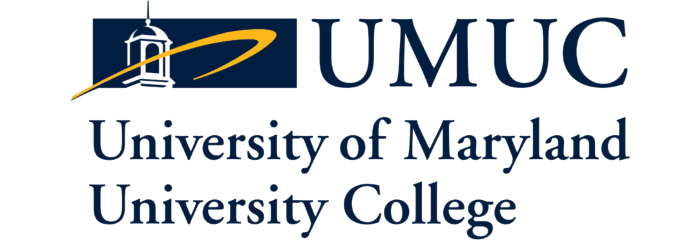
Total Points: 4
Program Website
The University of Maryland-University College is a public, coed USM System constituent. It was founded in 1947. It enrolls 68,996 undergraduates with 100 percent admission. It launched the Tuition-Free Golden ID Program for adults age 60 and over. In 2011, UMUC received a Council of College and Military Educators Institution Award. It won another OLC Effective Practices Award in 2018. Forbes named the University of Maryland the 41st best value and 61st top college. The university was ranked:
- America’s best for vets choice in Military Times
- top university for older adults by AARP
- the 76th best PayScale ROI
The Healthcare & Science Division offers an affordable Gerontology and Aging Services B.S. for assisting Americans age 65 or older. The program is 120-credits. The MSCHE-accredited option accepts up to 90 transfer credits for fast completion of courses from Wellness Promotion to Psychosocial Aspects of Aging. Students can also:
- find 15-week internships like Future Care Chesapeake
- join Sigma Phi Omega
- add the Spanish Certificate
- enter the One2One Mentorship Program.
Degree Options:
Bachelor of Science in Gerontology and Aging Services
In-State Tuition: $7,416
Out-of-State Tuition: $12,336
Student:Faculty Ratio: 19:1
5. Missouri State University-Springfield
Springfield, MO

Total Points: 4
Program Website
Missouri State University-Springfield is a public, research-intensive AASCU member founded in 1905. It enrolls 20,681 undergraduates from 85 countries. It has been named an AGHE Gerontology Program of Merit. In 2019, Missouri State won a CASE District VI Institutional Excellence Award. It was also the 2015 MoCPA Stephen H. Petersen Award recipient. The U.S. News & World Report ranked the university 111th in the Midwest. It was ranked:
- America’s 125th best Greek life college on Niche
- 189th top public university in Forbes
- 80th coolest school by the Sierra Club.
The McQueary College of Health & Human Services trains BS in Gerontology majors to effectively coordinate activities for older adults. The 120-credit, HLC-accredited program offers courses from Public Speaking to Biology of Aging. Undergrads of this low-cost degree program can also:
- intern at Harmony House
- conduct Mnemonic Strategies Lab projects
- apply for the Lea Landon Scholarship
- attend Expanding Your Horizons
- minor in Ozark Studies
- join the Gerontology Club.
Degree Options:
Bachelor of Science in Gerontology
In-State Tuition: $7,376
Out-of-State Tuition: $15,326
Student: Faculty Ratio: 22:1
4. California State University-Sacramento
Sacramento, CA

Total Points: 4
Program Website
California State University-Sacramento is a public, space-grant AASCU member established in 1947. It enrolls 28,317 undergraduates from 39 nations. It has an 81 percent retention rate. It’s known for its 65th Street Corridor Community Collaborative Project. In 2012, it received the Arbor Day Foundation Tree Campus USA Award. Sac State earned the 2010 CFA Lila Jacobs Award for Social Organizing. The U.S. News & World Report ranked it the 17th best West bachelor’s institution. The university was ranked:
- America’s 95th top value in Forbes
- 121st best big college by Niche
- 293rd best career outcomes on WalletHub.
The College of Social Sciences & Interdisciplinary Studies offers the affordable BS in Gerontology for in-depth insights into how people age. The 120-unit, WASC-accredited curriculum has electives from Family Finance to Recreation Therapy plus six practicum units. Undergrads may also:
- become GERO Ambassadors
- join Sigma Phi Omega
- apply for the Stearns Scholarship
- intern at Sutter Health
- take the Peace Corps Prep Certificate.
Degree Options:
Bachelor of Science in Gerontology
In-State Tuition: $7,310
Out-of-State Tuition: $19,190
Student: Faculty Ratio: 26:1
3. CUNY York College
Jamaica, NY

Total Points: 4
Program Website
CUNY York College is a senior public institution opened in 1966. It enrolls 8,393 undergraduates in 64 majors. It hosts the Conference on Aging and End of Life Issues each March. In 2018, CUNY York dominated the Chronicle of Higher Education’s Mobility Report Card. The U.S. News & World Report ranked CUNY York College 34th in the Northern Region. The institution was selected America’s 126th best baccalaureate institution in Washington Monthly and 334th most selective university on Niche.
The School of Health Sciences offers and affordable Gerontological Studies and Services (BS) that focuses on aging processes. It partners with Manhattan Community College for an optional 2+2 A.S. The 120-credit, MSCHE-accredited program has generalist courses from Alzheimer’s Disease to Basic Cardiac Life Support. Valuable experiences include:
- interning at New York-Presbyterian
- completing the Honors Program thesis
- joining SWEET Club
- taking the Moldova Semester.
Degree Options:
Bachelor of Science in Gerontological Studies and Services
In-State Tuition: $7,158
Out-of-State Tuition: $14,828
Student: Faculty Ratio: 20:1
2. University of South Florida
Tampa, FL
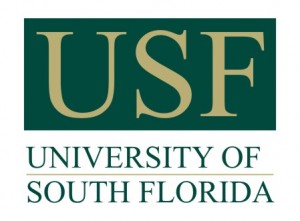
Total Points: 4
Program Website
The University of South Florida is a preeminent public, space-grant RU/VH school founded in 1956. It enrolls 50,755 students from 130 countries. It is home to the Center of Excellence for Aging & Brain Repair. In 2019, the university received the ACE Award for Institutional Transformation. USF won the 2018 Active Minds Healthy Campus Award. The U.S. News & World Report ranked USF the 124th best university and 71st top value. USF was named:
- America’s 44th best big college on Niche
- 201st best campus experience by WalletHub
- 14th coolest school by Sierra magazine
The College of Behavioral & Community Sciences offers one of the most affordable B.S. in Aging Sciences for undergrads. The 120-credit, SACS-accredited program fulfills Florida’s Chapter 21z.11 code for certification with a Long-Term Care Administration specialization. Students often also:
- volunteer with Meals on Wheels
- do research in the Byrd Alzheimer’s Center
- intern at Angels Senior Living
- join the Gerontology Student Association.
Degree Options:
Bachelor of Science in Aging Sciences
In-State Tuition: $6,140
Out-of-State Tuition: $17,324
Student:Faculty Ratio: 22:1
1. Winston-Salem State University
Winston-Salem, NC
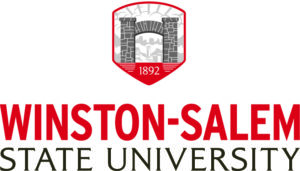
Total Points: 5
Program Website
Winston-Salem State University is a public, historically Black TMCF member founded in 1892. It enrolls 5,190 students from 35 countries. It was awarded a $269,000 United Way of Forsyth County Grant for Project REACHE. In 2019, the university was a finalist for HBCU Digest’s College of the Year Award. IT also received a 2018 Insight Into Diversity Higher Education Excellence Award. The U.S. News & World Report ranked Winston-Salem State 36th nationally. It was also named:
- America’s 228th most liberal school on Niche
- 455th best value in Money
- 14th top choice on the Social Mobility Index
The Department of Behavioral Sciences offers an affordable cheap Gerontology B.A. for a well-rounded introduction to what elderly, multicultural adults need. The 120-credit, SACS-accredited sequence includes such courses as Leisure & Aging and Wellness Coaching as a Program of Merit. Students can also:
- serve with The Shepherd’s Center
- intern at Brighton Gardens
- attend the AARP Challenges Across Life Seminar
- join Sigma Phi Omega
- minor in Deaf Studies.
Degree Options:
Bachelor of Arts in Gerontology
In-State Tuition: $5,904
Out-of-State Tuition: $16,151
Student: Faculty Ratio: 14:1
Which Careers are Available with a Cost-Effective Gerontology Degree?
Attending affordable colleges for gerontology degree programs will unlock doors for kind, caring practitioners to serve senior citizens. Gerontology bachelor’s majors qualify for most human services careers without medical training or licensure requirements. For example, nursing home administrators manage the day-to-day operations of residential living facilities for elderly patients. Gerontological social workers help older adults cope with aging problems like medical care and financial strain. Health educators can plan gerontology initiatives to teach beneficial lifestyle choices for late adulthood. Home healthcare managers supervise personal care aides assisting elderly individuals. Life care planners develop customized long-term plans for older persons with chronic illnesses and diseases. Other jobs with an affordable degree in gerontology include:
- mental health associate
- geriatric policy advocate
- grief counselor
- hospice coordinator
- social service assistant
- financial advisor,
- leisure activities director.
What is the Salary ROI at Affordable Colleges for Gerontology Degree Programs?
Choosing a low cost accredited university for gerontology degree completion is essential because social welfare jobs aren’t usually as lucrative as they are meaningful. In May 2018, the Bureau of Labor Statistics reported a median wage of $44,960 in community service professions. Healthcare social workers make an average yearly salary of $56,810. Adult and family social workers report a mean income of $48,430 annually. Grief counselors earn $44,060 on average. Health educators can expect a median pay of $45,300. Social service specialists collect mean wages of $37,040. Healthcare support workers earn $38,730 on average. Mean salary projections jump to $83,720 in health administrative jobs though. Salary.com found that most nursing home administrators bring home $101,291 to $126,760. Gerontologists and hospice directors can make up to $196,073 and $128,937 respectively.
How is the Job Outlook for High-Value Gerontology Degree Graduates?
Most gerontology degree alumni can expect hiring prospects to remain very good. Grand View Research expects the geriatric medicine market to hit $1.01 trillion by 2024. In the next decade, the United States will have more older adults than children. The Department of Labor reports that the social service sector will add 371,900 total jobs through 2026 for 14 percent growth. Gerontological social workers will see openings spike faster than average by 19 percent. Employment of mental health counselors will surpass 320,400 for a 23 percent increase. Demand for nursing home administrators has been booming by 20 percent since 2016. Entry-level human service assistant positions are growing 16 percent. Health educators can also expect 10-year job growth of 16 percent. Forbes listed Iowa, South Carolina, Washington, and Arizona as the top states for older Americans. Jobs are particularly plentiful there after finishing an inexpensive accredited college for gerontology degree.
AS Staff
September 2019
This concludes our ranking of the top 15 best affordable colleges for a gerontology degree in 2019.
Other Rankings of Interest:
The 25 Largest Public Colleges with Online Bachelor’s Programs
25 Online Public Bachelor’s Colleges with the Least Four-Year Tuition Change
20 Best Affordable Online Colleges for Finance Degree (Bachelor’s)
15 Best Affordable Biology, Biochemistry, Zoology Degree Programs (Bachelor’s)
15 Best Affordable Communications Degree Programs (Bachelor’s)
25 Most Exclusive Public Bachelor’s Colleges by Admission Rate
25 Most Affordable Online 4-Year Latinx/Hispanic-Serving Colleges

 The Best Colleges
The Best Colleges The Lowest Costs
The Lowest Costs The Highest Returns
The Highest Returns